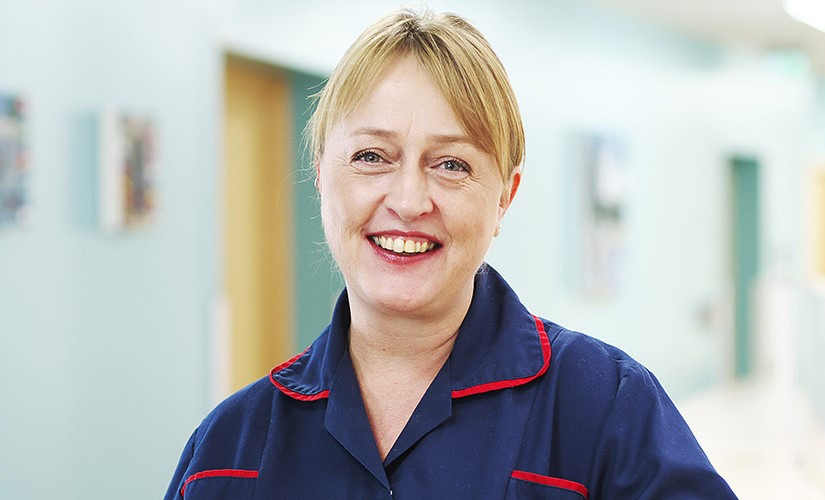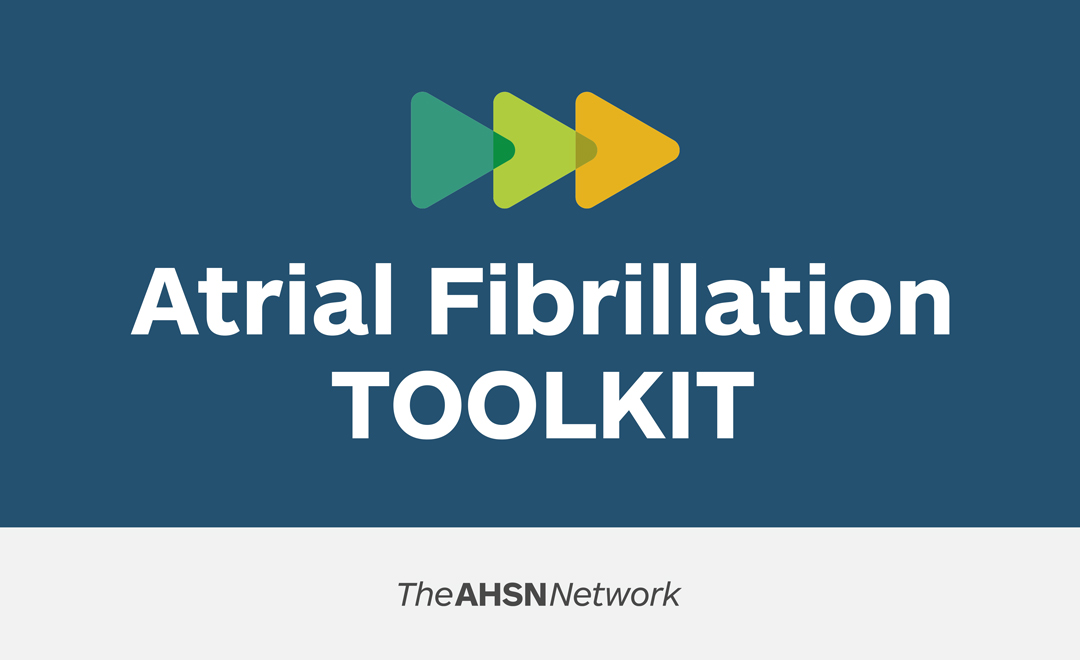New figures from the NHS show over 14,000 new patients have been diagnosed with atrial fibrillation in the East of England following the continued national drive to identify the condition
Atrial fibrillation (AF) is the most common type of irregular heart rhythm and can increase risk of stroke, leaving survivors with disabling consequences. Around 200,000 people in the UK develop AF each year1. Detecting AF early and making sure people are given optimal treatment – usually blood-thinning medication to prevent clots (anticoagulants) reduces the risk of stroke by two thirds.
Over the last four years a programme delivered by the AHSN Network in conjunction with colleagues in the NHS has introduced a number of initiatives to identify and treat those with the condition, including pulse checks for over 65’s, mobile ECG devices for GP surgeries and pharmacies, and virtual clinics involving specialists working alongside GPs to advise on the best treatment for people with AF. You can read how Health Innovation East has partnered in this work in our region here. Since the start of the programme, which has been shortlisted by the HSJ Awards 2020 for Primary Care Innovation of the Year, the number of additional people in England with AF receiving treatment each year has increased by almost 300,000.
Data from the Quality Outcomes Framework released by NHS Digital this week shows that in 2019/20, 14,280 new cases of AF were diagnosed in the Eastern region, on top of 8,622 the year before. It takes the total number of people registered as having the condition in the East of England to over 96,000, with 87.5% of those eligible now receiving anticoagulants.
Increasing the diagnosis and treatment of the condition has been shown to reduce the prevalence of strokes and save lives, which in turn also saves costs for health and social care.
Since Health Innovation East initiated the programme four years ago, data suggests that in the region it has led to an estimated:
- 918 strokes avoided
- 230 deaths avoided
- 22,953 additional patients receiving anticoagulants
- £12m savings for the NHS
- £8m savings for social care
Professor Gary Ford, Chief Executive of Oxford and Consultant Stroke Physician said:
“Identifying people who have AF and ensuring they are provided with the most appropriate anticoagulant therapy can significantly reduce their risk of having a stroke.
“The work we have undertaken with our partners in primary care, alongside others in both the NHS and charity sector, has prevented thousands of people having a stroke. The latest data also shows that these measures have resulted in significant cost saving to the NHS and social care, with £158 million and £105 million saved respectively”

For more information on our work in detecting AF and our wider programme in cardiovascular disease, contact Nick Clarke, Principal Advisor at Health Innovation East at nick.clarke@healthinnovationeast.co.uk.
References
- Martinez C, Katholing A, Wallenhorst C, et al. Increasing incidence of non-valvular atrial fibrillation in the UK from 2001 to 2013. Heart 2015;101:1748-1754
- Stroke costs based on PHE Size of the prize 2017. The economic burden of stroke care in England, Wales and Northern Ireland, Xu et al 2017
- Stroke statistics taken from State of the nation, Stroke Association, January 2017
- The NHS AF data can be found at https://qof.digital.nhs.uk/
You may also be interested in…
Get involved
We help healthcare providers to implement nationally proven innovations to deliver patient impact.
Find out more
